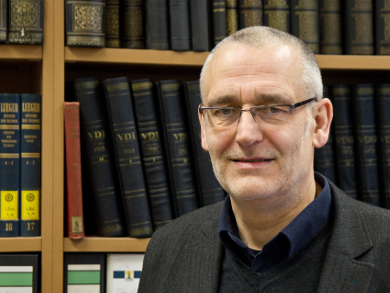Chemistry underwent a dramatic development at the beginning of the 20th century. Given that this period saw two World Wars, chemistry proved particularly useful for the war effort, for example the synthesis of gasoline and explosives. In Germany, the National Socialist regime was very enthusiastic about the latest technological advances. However, what was the exact contribution of the German chemical societies to World War II?
The Board of the Gesellschaft Deutscher Chemiker (GDCh, German Chemical Society) has commissioned history professor Helmut Maier from Ruhr-Universität, Bochum, Germany, to look back into this period, which was previously mostly shrouded in silence, and into the activities of the predecessors of GDCh, the “Deutsche Chemische Gesellschaft” (DChG) and the “Verein Deutscher Chemiker” (VDCh). His work will be published by Wiley-VCH in March 2015.
As Henning Hopf from the Technische Universität Braunschweig, Germany, explains in his Editorial in Angewandte Chemie, as World War II approached, the engagement of the chemical societies with military projects increased. As the war progressed, the chemical organizations also became involved in collecting data for the Wehrmacht and even removing laboratories and libraries from occupied countries. Maier’s book finally lifts the fog of secrecy surrounding this difficult period in history.
- The German Chemical Society (GDCh) and Nazi Germany,
Henning Hopf,
Angew. Chem. Int. Ed. 2015.
DOI: 10.1002/anie.201500846
 |
Chemiker im Dritten Reich: |




